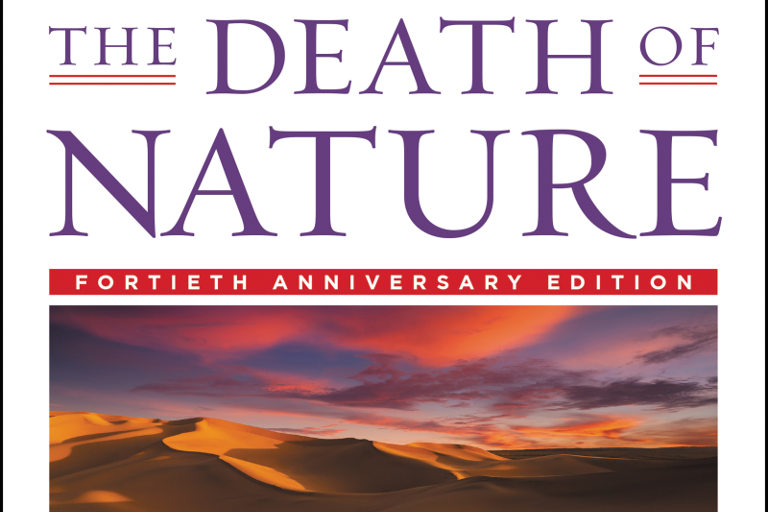July 22, 2021

“I wish to speak a word for Nature, for absolute freedom and wildness, as contrasted with a freedom and culture merely civil—to regard man as an inhabitant, or a part and parcel of Nature, rather than a member of society. I wish to make an extreme statement, if so I may make an emphatic one, for there are enough champions of civilization: the minister and the school committee and every one of you will take care of that.”
“…[I]n Wildness is the preservation of the World.”—- “Walking” by Henry David Thoreau, May 1862
“I feel so much more at home even in a scrap of garden like the one here, and still more in the meadows when the grass is humming with bees than at one of our party congresses. ”—- Letter to Sophie Liebknecht by Rosa Luxemburg, Breslau Prison, May 2, 1917
1. Introduction
This essay is a response to a question I was asked during a Zoom presentation and discussion about Ecocentric Socialism on May 7, 2021. The meeting was organized thanks to Mr. Farrokh Jafari and Ettehad-e Fadian-e Komonist (Fadian Communist Unity) who invited me. The presentation and discussion followed two earlier meetings they organized. In the first, Mr. Jafari introduced environmentalism and some of the environmental problems we face particularly in Iran. The second meeting was organized after a reading of two of my essays, “The Crisis of Civilization and How to Resolve It: An Introduction to Ecocentric Socialism” (October 2018) and “The Coronavirus Pandemic as the Crisis of Civilization” (March 2020), to discuss them and raise questions. These questions were then shared with me to prepare my presentation for May 7. The most important of these questions was this: “How does Ecocentric Socialism differ from other theories of socialism and ecosocialism?” Although I offered an outline of a response to this question in my Zoom presentation, it was clear that there is much more to be said in more detail. This is the task of this essay.
After an initial opening remark in which I focus attention on the problem of anthropocentrism, I will present textual arguments in Section 2 to demonstrate that anthropocentrism is a hallmark of human civilization for almost 5,000 years.
In Section 3, I will discuss how anthropocentrism arose as the reflection of alienation from nature as some groups of hunter-gatherers began to take up farming about 12,000 years ago in the process that is now called the Agricultural Revolution leading to the establishment of the first city-state civilizations about 5,000 years ago.
In Section 4 (ed. note: this will be Part 2 to be posted subsequently), I will outline the main features of Ecocentric Socialism and how it differs from other socialist and ecosocialist theories including some key policy implications.
4. Theory and Practice of Ecocentric Socialism
Ecocentric Socialism distinguishes itself from all other theories of socialism and ecosocialism by a conscious attention to the problem of alienation from nature as manifested in anthropocentrism.
Animistic ecological materialism
For about a decade, I have proposed a rethinking of the theoretical heritage of Marx and Engels that would do away with the dualism inherent in historical materialism by arguing for a theory of history deeply embedded in ecology (For the most recent statement, see Nayeri, 2020, October 2018; also see, Nayeri 2013). Central to my reconsideration is the ecological nature of humans and the scientific understanding of who we are and where we come from so that we can better understand where we are going.
We now know that life itself emerged out of inorganic matter and humanity’s lineage is from mammals, in particular primates, that eventually led to the emergence of the Homo genus over 2.8 million years ago and subsequently Homo sapiens who emerged at least about 300,000 years ago. That is, society has emerged out of biology which itself emerged out of physical and chemical properties of inanimate objects. It follows that we are not just the sum total of our social relations but instead we are the sum total of our ecological and social relations over at least 2.8 million years.
Humans as “collective organisms”
We are even more embedded in the web of life than we could have imagined only two decades ago. In recent decades, the study of the human microbiome, the collection of all the microorganisms living in association with human cells and organs, has advanced greatly, although our knowledge of their relationships is still at infancy.
“These communities consist of a variety of microorganisms including eukaryotes, archaea, bacteria and viruses. Bacteria in an average human body number ten times more than human cells, for a total of about 1000 more genes than are present in the human genome. Because of their small size, however, microorganisms make up only about 1 to 3 percent of our body mass (that’s 2 to 6 pounds of bacteria in a 200-pound adult).” (National Institute of Health Human Microbiome Project, accessed March 17, 2020)
Although most biologists treat the microbiome as separate from the human body, they also acknowledge its essential role for our wellbeing:
“These microbes are generally not harmful to us, in fact they are essential for maintaining health. For example, they produce some vitamins that we do not have the genes to make, break down our food to extract nutrients we need to survive, teach our immune systems how to recognize dangerous invaders and even produce helpful anti-inflammatory compounds that fight off other disease-causing microbes. An ever-growing number of studies have demonstrated that changes in the composition of our microbiomes correlate with numerous disease states, raising the possibility that manipulation of these communities could be used to treat disease.” (ibid. emphasis added)
The socialist biologist Michael Friedman also notes:
“Some biologists conceive of our microbiota as a hitherto unrecognized organ or organs fulfilling important physiological functions and networking with other organ systems, while many microbial ecologists propose that we are not ‘individuals,’ but collective organisms comprised of the person (mammal) and its entire microbiome. Many other species are also collective organisms, termed holobionts, tightly bound by evolution ever since the earliest eukaryotic cells arose from fusions of independent prokaryotes (non-nucleated cells, such as bacteria).” (Friedman, 2018)
Lynn Margulis, the celebrated biologist and evolutionary theorist, with her co-author, Dorion Sagan (Margulis and Sagan, 2002), have argued for a theory of symbiosis which refer to mutual interaction involving physical association between “differently named organisms.” In the “Forward” to their book, the prominent evolutionary biologist Ernest Mayr writes: “At first considered quite exceptional, symbiosis was eventually discovered to be almost universal.” Donna J. Haraway (216), ecofeminist and a philosopher of the interaction between science, society, and nature, has made symbiosis a foundation of her view of social life.
Thus, in a biological sense, a human maybe considered a “collective organisms,” an organic whole that is greater than the sum of its multiple constituent parts. This view of humanity is much closer to the philosophical holism of Hegel (1817) promoted also by Marx that “the truth is in the whole.” Indeed, recent research has found a correlation between gut microbiota and personality in adults (Han-Na Kim, et.al. 2018). If microorganisms in humans may affect even our personality, how could they not have an impact on our history as a species?
READ ON

No comments:
Post a Comment